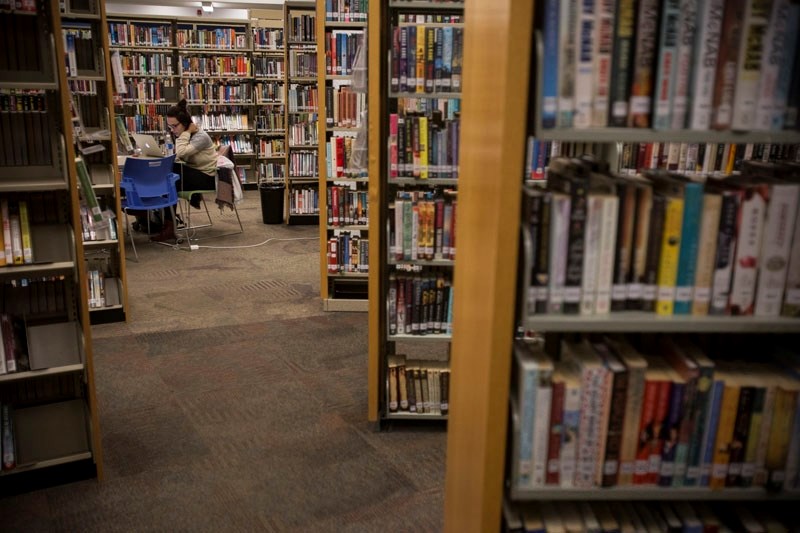Libraries can be the heart of rural communities. They are a social gathering space and connecting link to services and programming, along with being a place to get the novel you need for book club.
“They're one of the last places that you can go in your community, without the expectation to spend money,” said James MacDonald, executive director of the Northern Lights Library System (NLLS), which operates 47 libraries in northeast Alberta.
“It's one of the only spaces in your community where, from the cradle to elderhood, everyone is welcome. Regardless of their socioeconomic background, regardless of their social skills — everybody is welcome,” MacDonald said.
Though libraries are principally free and unrestricted places, in many towns and villages throughout Alberta the “heart of the community” is only open 16 hours a week –– or less.
“It's a great space, and it's got all the services. But if you can't access them, because the doors aren't open, that's a real problem,” MacDonald said.
These rural libraries have had to cut back their hours largely because they don’t have the money for staff and other resources, MacDonald said. In almost every community he thinks the services offered at the library would be used if there were more hours available.
The 2023 Alberta budget increased funding for public libraries by 10 per cent from $30.5 million to $33.5 million. The additional $3 million is the first change to library operating grant funding since 2015. During the same time, the consumer price index in Alberta has increased by about 16 per cent.
“First of all, we greatly appreciate increased funding from the province. Three things happened: first, there was a five per cent increase in the per capita grant. Second, population figures were updated from 2016 to 2019. Third, the minimum rate received for very small communities was updated. These changes combined to assist our member libraries to serve their patrons,” said Hank Smit, board chair of the Yellowhead Regional Library.
“Unfortunately, for many libraries, these increases were not sufficient to deal with the full pressures of inflation and rising costs. Some libraries continue the need to run deficits, cut services or hours and so forth.”
Each year, the NLLS delivers over 850,000 books to 175,000 residents in northeast Alberta, MacDonald said. The van bought by the library in 2019 to make these deliveries cost $32,000. When they purchased the same van in 2022, the price had doubled, he said.
“That's not eight per cent inflation. That's 100 per cent inflation. Some of these costs are a really big hamper to delivering library services,” he said.
MacDonald said he would like to see library funding indexed to inflation so that the province's seven library systems can meet the needs of rising salaries, infrastructure costs, and the climbing price of just about everything, without having to fight for it.
“We're spending a fair bit of money and time and effort as librarians advocating for money when we could be spending that doing library work,” MacDonald said.
“I think at the very minimum, the province needs to look at a model that increases with time, and that we're not having to waste those dollars advocating for more money and getting increases every five-to-ten years –– that don’t cover the increased costs.”
Libraries don’t just deserve to be funded, Macdonald said, they are critical infrastructure that needs to be funded.
As long as librarians have existed, they have been helping people discern credible from credulous sources of information. But in an age of deep fakes and rampant disinformation, this role is becoming more important than it has ever has been, MacDonald said.
“In terms of rural librarianship, sometimes it's the only place in a community you can go where you can find other sources of information and get the skills you need to judge the information you're getting online or from others around you,” he said.
Aside from the services libraries provide, their place as a hub that brings a community together is itself paramount.
In Newbrook, Alta., a hamlet of about 100 people in Thorhild County, locals used custom-built trailers to put together “a fabulous library that has the whole community turn out every Thursday for a meal,” MacDonald said.
“That’s a small rural community where the library is 100 per cent the heart of the community.”



